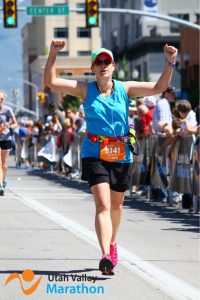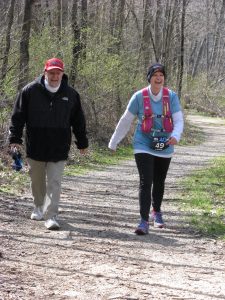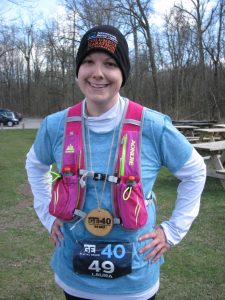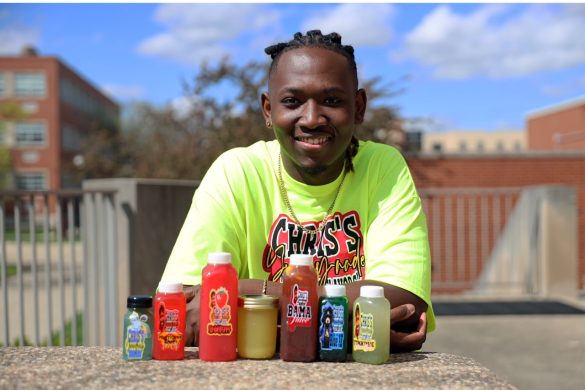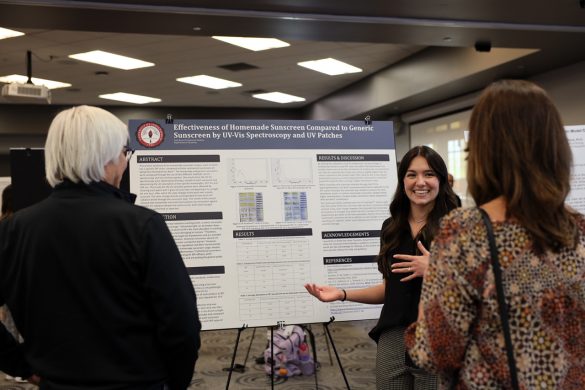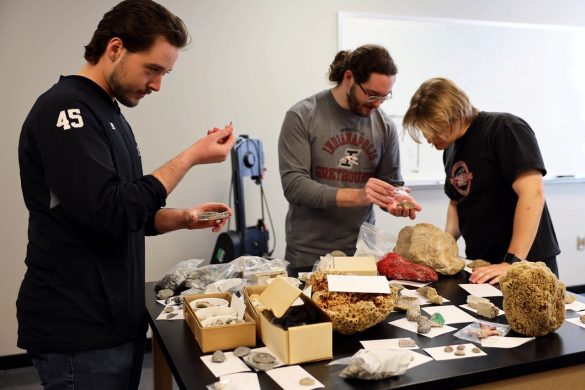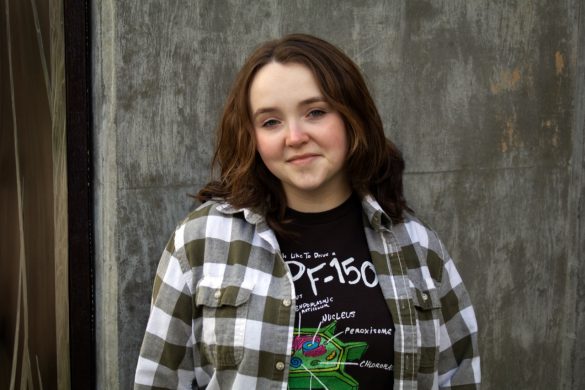Assistant Professor and Director of Health Science College of Health Sciences Laura Santurri began running with her father as a means to feel closer to him. However, running began to evolve into something more for Santurri. Running became a means of dealing with health problems, including suffering from interstitial cystitis, and to raise money for charities that she believes in strongly.
Laura Santurri competed in the 2014 Utah Valley Marathon, which was established in 2008. She placed 493 in her gender and age group and averaged 11:43 per mile.
“I was feeling pretty crummy as a result of living with that condition, and feeling pretty poorly,” Santurri said. “I wound up trying a new treatment for the IC, and it gave me some pain relief. When that happened, I made the decision that I really wanted to take my life back.”
Santurri decided to start running in a step-by-step process. She began by running smaller distances, such as one mile, and gradually pushed herself to run longer races. The feeling of crossing a finish line made her feel more confident in racing, she said.
“Once I started doing races and crossing finish lines, for me it was a little addictive, because that finish line feels really good,” Santurri said. “My background is public health and I do a lot of work with health behavior theory. Self-efficacy is a big construct that you find in most health behavior theories. We can really explain a portion of why people do what they do based on their own confidence and their ability to do those things. The more finish lines I would cross, the more self-efficacy and self-confidence I had.”
Over the last 13 years, Santurri has participated in multiple marathons and ultra-marathons. She has made it a tradition to participate in a series called Trial 100, and she plans to run in it again next October. She said that she likes this particular series because the proceeds from the races go back into the upkeep of Chain O’ Lakes State Park, where the races take place. She also said that the series consists of the most common distances for ultra-marathons, which include: 50k, 50-mile, 100k, and 100-mile.
“With all that Harlan was going through, it helped me to know that I was giving back…”
Long distance running is not an easy task, according to Santurri’s husband, Harlan Siegel, and he is proud of Santurri for being able to push herself and complete races. Santurri said that there is extensive training that goes into preparing for an ultra-marathon, which is considered to be any marathon over 26.219 miles.
Santurri prepared for the Glacial Esker 40 with the help of her father, who she began running with. Santurri said he has been supportive of her since the start.
“When you’re pushing yourself to the limit with an ultra-race, you really have to ensure that you’ve got a well-rounded training plan,” Santurri said. “So, you have to run, and you have to run a lot, but you have to run a lot and not hurt yourself. Having a structure to when you run and how much you run is really important, but the whole strength training and stretching is really important too. The other piece is nutrition. You can run a marathon and not eat anything. You can’t do an ultra and not eat. You have to train your body to be able to digest food while you’re running.”
Santurri began running because of her father, but when her husband was diagnosed with Chronic Myelogenous Leukemia, running turned into something more. She reached out to an organization that raises money for cancer research, helps patients afford treatments and funds a number of Leukemia Lymphoma Society research projects. When she decided to run alongside Team in Training, she said she became a stronger runner, not only through building her endurance, but also by being surrounded by a supportive group.
Santurri said that she got involved with Team in Training, which is a part of the Leukemia Lymphoma Society. Team in Training is a group that runs events in order to help to raise money for those with leukemia.
Santurri raised funds for her husband’s medical expenses with the help of this foundation. Through the LLS website, people can upload and share their story with the public, allowing others to donate through individual links. The money that is raised through donations on each individual link, goes straight to the families raising the funds. She recently raised over $1,000 through donations to the LLS website, and $3,000 on top of that running with Team and Training in long-distance races.
Santurri competed in the 2018 Glacial Esker 40, placing 87 overall with a time of 10:44:11. She said she plans to compete in this 40 mile race again in April of 2019.
“I joined Team in Training within a week or so of his [Siegel’s] diagnosis and he was aware that I was doing it. For me, I needed us to become connected with others who were going through something similar, and I also wanted to find a way to be helpful,” Santurri said. “With all that Harlan [Santurri’s husband] was going through, it helped me to know that I was giving back and raising money to find a cure.”
Siegel said that everyone has to find what they enjoy, and his wife has always loved running. He said that there is a sense community with those who participate in these long-distance races and they have become a part of that. Before being diagnosed, Siegel ran beside his wife. He said distance running is something they’ve always enjoyed. Santurri said Siegel even ran with her when she began running for Team in Training.
“When I joined Team in Training, Harlan did some running with me, but because he had just been diagnosed, he mostly came to runs/races to be supportive,” Santurri said. “He was our team’s honored hero for a while as well.”
Siegal said the decision to choose a cause to run for was simple. He said that he is proud of his wife for choosing a such an important cause. The choice was a joint-decision to the LLS’s role in their lives.
“LLS has been near and dear to our hearts since my diagnosis,” Siegel said.
Santurri said she will compete in a 100-mile race in Oct. of 2019 at almost the exact date of the five-year anniversary of her husband’s diagnosis.
